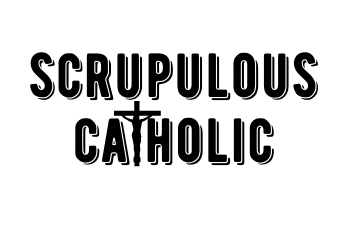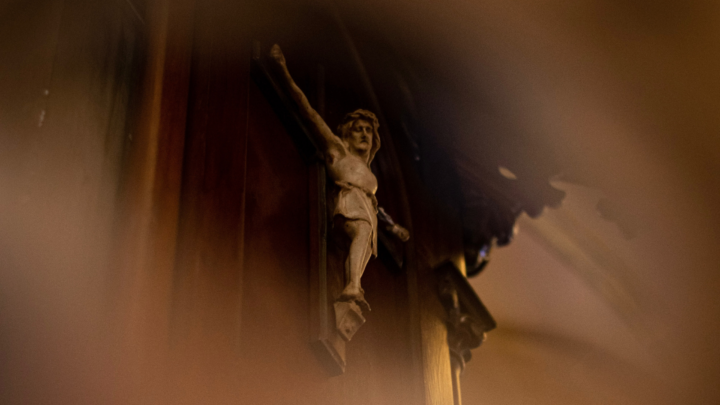Questioned by one of my friends, I was caught off guard and did not know how to answer “why Catholics worship statues?”
That time, I was confused and hurt because I felt I was attacked, my faith was assailed.
This led me to search for reasons. I came across diverse arguments people have on Catholicism. And eventually, I got introduced to Apologetics.
I became in love with my faith that I began to practice it once again.
After 10 years, in God’s grace, I went back to the confession. I regularly attended the Holy Mass. And immersed myself in the teachings of the Church available online.
With the knowledge I got, I reformed and began new practices. I challenged myself to be a better Catholic.
At first, I had a sense of satisfaction considering the good effects it brought to my soul. But, as time went by, it changed me to being stiff.
My practices became routinary and dragging. It turned me into a robot.
Every year, I have this promise I should accomplish. One example is to attend the Holy Mass every Sunday. Another one is to record the homilies each week for the whole year.
I made them possible but with too much rigidity. I became too cautious of the details.
Then, the challenge I had for myself last 2019 which was to receive the Holy Eucharist every single week, pushed me to be scrupulous. I would do everything just to accept Him on Sundays without a miss.
Signs
It was a normal mid-year for me at that time. I was able to stick to my penance during lent and celebrated Easter with so much joy. It was in the last quarter of the year that my obsessive-compulsive disorder reached its peak that I noticed all the signs as follows:
Intrusive thoughts
Intrusive thoughts are thoughts that enter one’s mind unexpectedly. It could be in a form of an idea, word, or image.
These thoughts are common for those who have Religious Obsessive-Compulsive Disorder. They become part of the obsession and performing the compulsion will reduce the torture.
Intrusive thoughts usually attacked me while praying. Impure words and images just kept on disturbing me.
I knew that it was my fear of offending God that started these thoughts to bombard me.
This led me to develop a compulsion that made my prayer time longer, the act of contrition. When dirty thoughts got in, I recited it before continuing. I just could not pray imperfectly thus repeating the prayers many times until I make it right.
Forgetfulness
Scrupulosity is also known as a doubting disease. The doubting part happens not only when deciding if action is sinful or not, it also takes place in prayer.
Did I say it right? Did I miss this word? Did I recite it with intention?
These are some of the questions scrupulous tend to ask while praying. And this always ends up with prayer being repeated.
Superstitious
Displeasing God may result in misfortunes. This is the mindset that feeds OCD which makes it worse creating superstitions. The scrupulous then become highly sensitive to their actions, thinking that when they commit mistakes bad things will automatically happen.
Too much Confession
Confessing many times is a compulsion. This is the reaction to the obsession which is fear of sins.
Once scrupulous think they sin, they would go to confession to be absolved to diminish what they are afraid of. Usually, hell. In my case, receiving Christ in the Eucharist unworthily.
Hack: The above signs could be gradually managed through exposure. If intrusive thought keeps on bothering you, so be it. If you think you missed or forgot words in prayer, go on. If you are unsure if an act is a sin or not, do it. If you feel you need confession, shun the idea. Do not react. I advise you to break the cycle even just once. It works. The next time it happens, you will just ignore it. It will take time but it’s worth it! Exposure is the key. Also, it is beneficial to record the instances you deviate from the compulsions. It will help you to avoid relapse because you can already track that you broke them before.
Solution
Spiritual Direction
Finding a spiritual director is the wisest thing a sufferer could do. Having someone as a guide would drastically help you to recover from the disorder. Usually, a priest or any religious could walk with you on the path to healing. Imagine, having a person you could directly ask with regards to faith. Overall, this is by far the best solution to scrupulosity.
You can check this guide that discusses spiritual direction for the scrupulous.
Professional Help
Together with spiritual direction, seeking professional help contributes to full recuperation. A psychiatrist or psychologist can partner up with the spiritual director for the best result.
This is not required. It depends on the individual. If one sees a good outcome in a spiritual direction alone, looking for a psychological professional is optional.
Exposure Response Prevention Therapy
ERP therapy is an Exposure Technique used to control Obsessive-Compulsive Disorder.
It involves exposing individuals with OCD to their fears and preventing them to perform rituals to decrease distress. If repeated multiple times, the responses would be different eradicating the compulsion.
Trust in God’s Mercy
Scrupulosity comes from the terror of sinning against God.
For the gray acts scrupulous avoid because of the chance of transgressing, they are deciding for themselves whether it is a sin or not. They do not let God be God. The mercy of God is overlooked. Pride takes over.
Trusting in God’s mercy plays an important role in fixing this OCD.
If scrupulous trust, the guilt is lessened and so is the continuous cycle of doubt as to whether an action is sinful or not. Freedom takes place. Humility wins.
Mortal Versus Venial Sin
Knowing what sin is, helps the scrupulous distinguish if the action they took or will take is a sin or not.
In the Catechism of the Catholic Church, there are two types of sins: Mortal and Venial Sins.
CCC #1854: Sins are rightly evaluated according to their gravity. The distinction between mortal and venial sin, already evident in Scripture, became part of the tradition of the Church. It is corroborated by human experience.
CCC #1855: Mortal sin destroys charity in the heart of man by a grave violation of God’s law; it turns man away from God, who is his ultimate end and his beatitude, by preferring an inferior good to him. Venial sin allows charity to subsist, even though it offends and wounds it.
How to know if the sin is mortal or venial?
CCC #1857: For a sin to be mortal, three conditions must together be met: “Mortal sin is sin whose object is grave matter and which is also committed with full knowledge and deliberate consent.”
To elaborate on the conditions, we must ask ourselves:
- Grave Matter- Did I oppose the Ten (10) Commandments?
- Full Knowledge- Did I know it is a sin?
- Deliberate consent- Did I do it or not do it even though I knew it was a sin?
If even just one of the conditions is not met, the sin is not mortal.
Scrupulous individuals have a hard time differentiating mortal and venial sins so they end up going back to confession many times. This examination will help scrupulous discern if the sin they committed is mortal or venial.
It is not wrong to confess venial sins though, but it is not necessary especially if one has Religious OCD. This will just keep the compulsion happens.
Conclusion
Scrupulosity is a chronic disorder. The recovery time is continuous but with the combination of Spiritual Direction, Professional Help, ERP Therapy, and trust in God’s mercy, it can be manageable.
If you are confused right now about where to start on the path of healing, find a Spiritual Director. This must be your first step and the rest will follow.
You can check here on how to find one.
I created this blog to share my OCD journey. I know the feeling of being alone with this disorder. This is a heavy cross to bear and it needs serious help.
Together, let’s defeat scrupulosity!
St. Dymphna, pray for us.

